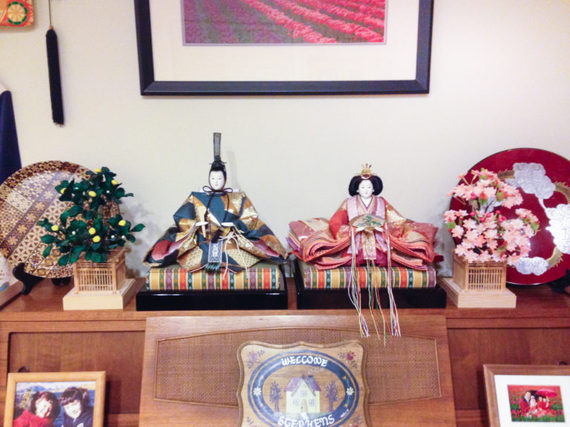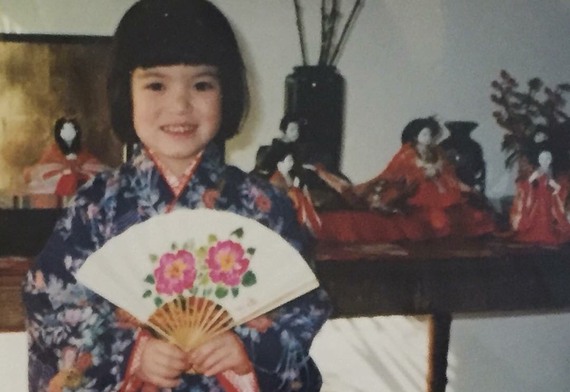How President Trump's Muslim ban -- Executive Order 13769 -- echoes WWII's infamous Executive Order 9066.
By Sophia Stephens
Recently, my mother sent a picture of our traditional Hinamatsuri dolls.
In the past, my sister and I helped her unpack each doll - about 16 in total - and arrange them on a precarious platform in our living room.
This time, it was just the emperor and empress sitting on top of the family piano.
The picture was gorgeous, but something felt wrong. I quickly realized that it embodied how it felt growing up Japanese American: beautiful but abbreviated.
 Emperor and empress Hinamatsuri dolls in Sophia's childhood home. Photo courtesy of Sophia Stephens.
Emperor and empress Hinamatsuri dolls in Sophia's childhood home. Photo courtesy of Sophia Stephens.
We are allowed to be here, but the way I'm treated sometimes keeps me in a state of doubt. The slights are big and small - from the smirk of disgust from the cashier at Safeway as I buy daikon, miso paste, and other Japanese foods, to men leering at me as they guess "what" I am because of my "exotic" appearance. Sometimes racism feels like death by a million paper cuts, other times like being hacked by a machete.
How close can we get to being American? How close can we get to being Japanese?
Getting too close to one end or the other of the spectrum threatened our affiliations.
I discovered the story of Japanese internment during World War II by myself since I never learned about it in grade school, and my parents didn't talk about it. I studied alone for years until my Asian American Studies class in college.
Now this painful reality of an executive order targeting ethnic communities is no longer confined to the sterile safety of a university classroom. It is happening again with President Trump's immigration policies.
Sure, my family is not at the epicenter of this, but we ride our own waves from the shock and despair of this latest betrayal.
I'm only one or two generations away from the immigrant experience. My mother is a green card holder from Japan who met my father in the 80's while studying in the States. My father is a first-generation American - he's the son of a World War II refugee who fled to America from Greece at the age of five to escape the Nazis. So the topic of travel bans and discrimination isn't too far away to talk about with either parent.
When my mom talks about Trump's executive order on immigration, she says "Now it is seven countries, but what is next? Japan? China?"
She sighs.
"If I can't go back to see my mother in Japan, and I cannot come back to the United States, I cannot imagine... I am always optimistic, though. I hope that Japan will stay okay."
This worry permeates my mind, but I know that there are others whose lives are not okay right now and affected much more deeply than I am. Although I'm not Muslim, I've been spending time at the Islamic Center of North Seattle since the travel ban to feel a sense of connection to the community.
The last time I went, I was taught how to worship - alternating from having our feet or shoulders touching as we listen to prayer to prostrating ourselves on soft carpet.
Each time I bend forward at prayer, I can see the whiteboard in the back says, "Muslims - do not be afraid. We fight for each other" out of my peripheral vision.
I wonder about Buddhist temples and Japanese spaces of community during World War II America. What was that atmosphere like? Was it like this?
The grief of marginalized people is universal.
And that is a horrifying comfort, if we can even call it that. To be honest, I don't know what to call it.
After prayer, I turn and ask the woman next to me what the community will do for now.
"We keep living," she says. "Life is hard, that is the way it is for us. But we do not give up."
She asks my ethnicity and I tell her that I am Japanese. She nods her head.
"So you know this, too."
Sophia Stephens grew up in Wenatchee, Washington and lives in Seattle.
Youth Radio/Youth Media International (YMI) is youth-driven converged media production company that delivers the best youth news, culture and undiscovered talent to a cross section of audiences. To read more youth news from around the globe and explore high quality audio and video features, visit Youthradio.org
